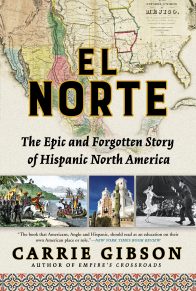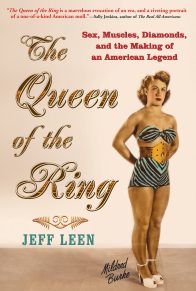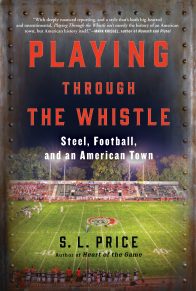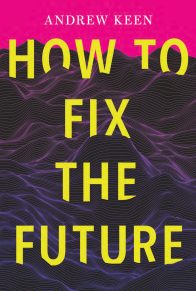“A splendid book . . . so wonderful I am sick with envy . . . Land of Lincoln is a book that teaches you more about Lincoln in its way than a five-volume biography would, and more about America today than almost any other book I can think of.” —John Podhorezt, New York Post
“There are at least 14,000 books on Abraham Lincoln, and even his greatest enthusiasts won’t claim to have read a tenth of them. Do we need another? Yes, indeed. What Andrew Ferguson offers in Land of Lincoln is the geography of enthusiasm itself. . . . A vivid, beautifully written book.” —Ernest W. Lefever, The Wall Street Journal
“Ferguson’s story, a fascinating collection of his reporting, is about us as much as Lincoln. It is a vibrant and consistently surprising account that chases the wraithlike spirit of the Great Emancipator as it is incarnated or invoked by those around us, usually on less-than-hallowed ground.” —Art Winslow, Chicago Tribune
“Ferguson is a curious and incisive, amusing and often amused guide. . . . On the surface, [his] subject is the present-day obsessives, eccentrics, and entrepreneurs who chew over Lincoln, dress up like him, or make bucks on his legacy. . . . But this book is no comic toss-off. . . . It’s a sharp, funny, complex book.” —Joshua Wolf Shenk, The New York Times Book Review
“A hilarious, offbeat tour of Lincoln shrines, statues, cabins, and museums. . . . The Land of Lincoln turns out to be a big place: bigger than Illinois, bigger even than the United States, stranger than anyone would have thought. Mr. Ferguson maps it expertly, with an understated Midwestern sense of humor that Lincoln, master of the funny story, would have been the first to appreciate.” —William Grimes, The New York Times
“Writing with humor, insight, imagination, and warmth, Andy Ferguson has accomplished a most unusual feat—he gives us a fresh look at Abraham Lincoln and his impact on our country.” —Doris Kearns Goodwin, author of Team of Rivals
“Andrew Ferguson is a writer with perfect pitch and flawless timing who can go from hilarity to poignancy without missing a beat. Whether he is describing the seedy glories of Route 66 or the Holocaust survivor who believed Lincoln came to him in a dream, his reporter’s powers of observation and his instinctive understanding of the human condition produce the satisfying blend of entertainment and instruction he delivers in this marvelous book.” —Florence King, Wilson Quarterly
“If I were to awake tomorrow morning and find myself in charge of a great big foundation, the first thing I’d do would be to award a great big grant to Ferguson so that he could quit his day job and do nothing but write books like Land of Lincoln. He is that rarest of birds, a writer who is at one and the same time very funny and very serious. . . . journalism like Land of Lincoln beats most scholarship hollow.” —Terry Teachout, Commentary
“Wow! This is a fascinating book. With his usual humor and insight, but also with real poignancy, Ferguson looks at how we see ourselves as a nation by exploring the way we choose to see Lincoln. The result is brilliant and amusing, but also deeply moving.” —Walter Isaacson, author of Einstein: His Life and Universe
“In the old days, historians—at least some of them—were patriotic and moralistic. No longer. We live in what Andrew Ferguson, in his brilliant new book, Land of Lincoln, calls ‘a wised-up era.’ Now, Ferguson explains, ‘skepticism about the country, its heroes and its history’ is ‘a mark of worldliness and sophistication.’ Ferguson is himself a worldly and sophisticated observer of contemporary America. . . . But his guided tour of the often amusing, sometimes bizarre ways we remember Lincoln today leads us gently from being wised-up toward wisdom. . . . Heartening and even inspiring.” —Time
“In Andrew Ferguson’s lively new book Land of Lincoln, he sets out to discover why Lincoln, more than almost every other historical figure, retains such a hold over Americans . . . It’s real fun . . . The author’s generous, curious spirit makes room for almost all Lincoln lovers, even the married couple who conduct a misguided management training workshop called ‘Lessons From Lincoln’ at the Gettysburg Battlefield Holiday Inn.” —Ruth Graham, New York Sun
“A marvelous addition to anyone’s summer reading list. . . . Unlike many cultural commentators who sacrifice reporting in pursuit of a good one-liner, Ferguson treats his subject with just the right ratio of humor and sobriety. That’s not to say the book isn’t often laugh-out-loud funny: it is. . . . Land of Lincoln is ultimately a slightly nutty road trip through the hearts and minds of those who still have a tendency to think and discuss Lincoln in the barely-passed tense.” —Stephen Miller, January Magazine
“This is a wonderful book . . . as wise and funny as you’d expect a book by Ferguson to be.” —Stanley Kurtz, National Review Online
“Rich and vibrant . . . Satisfying . . . Ferguson is a brilliant writer: realism with an impressionistic flourish and more than a dash of irony, plus a two-quart pitcher of eloquent sarcasm.” —David Bass, Capitol File
“In Land of Lincoln, Mr. Ferguson set out to find the real Abe, and his journey yields a portrait of modern American life unmatched in wit and insight. . . . An extraordinary and wonderful book.” —Tod Lindberg, Washington Times
“Land of Lincoln is, as its title suggests, LOL, which is to say, laugh-out-loud funny. It’s also a wonderful and serious book about the enduring impact of our greatest president, by one of our best and wittiest writers.” —Christopher Buckley, author of Thank You for Smoking
“Andy Ferguson is the single most important writer about American politics. Abe Lincoln was the single most important American politician. The combination of Abe and Andy is—no other word will do—Lincolnesque. Land of Lincoln is like its subject: wise, funny, melancholic, virtuous, complex, tragic, undefeated, kind, stern, and possessed of a fund of wonderful stories. If you don’t read this book you are on the wrong side of the twenty-first-century American Civil War, casting your lot with those who would secede from the union of good sense, good principles, and good humor.” —P.J. O’Rourke, author of On the Wealth of Nations
“What a funny and warm-hearted and wonderful book this is. In Land of Lincoln, part sociology, part journalism, part history, Andy Ferguson’s superb reporting bursts forth on each page. This book belongs on the bookshelf of every civil war buff!” —Jay Winik, author of April 1865: The Month That Saved America
“Now he belongs to the ages—including the age of kitsch, criticism, and yearning in which we live. Andy Ferguson, one of the best writers in America, tracks Lincoln through twenty-first-century America with humanity, clarity, humor and passion—the very qualities of Lincoln himself.” —Richard Brookhiser, author of What Would the Founders Do?: Our Questions, Their Answers
“What a look into the world of Lincoln Andrew Ferguson offers his readers! He visits Lincoln’s detractors as well as his champions, those who dress up in an effort to be the man, those who collect everything from Lincoln’s hair to his teetotaling likeness on a whiskey shot glass. It’s so darned much fun to travel along with Ferguson as he parts the curtains and leads us to the Land of Lincoln.” —Vicki Erwin, Main Street Books, St. Charles, MO
“With his curiosity piqued by a 2003 protest against the installation of an Abraham Lincoln statue in Richmond, Virginia, journalist Ferguson decided to undertake a tour of vernacular attitudes toward the historical Lincoln. . . . Ferguson and his discovery of the infinitely malleable Abe—yesterday’s Emancipator, today’s business consultant—delivers wry, ever-humorous perspectives.” —Gilbert Taylor, Booklist
“The question that animates this original, insightful, disarmingly funny book is: how do Americans commemorate Lincoln, and what do our memories of him reveal about our visions of the good life? To discover the answer, Ferguson, an editor at the Weekly Standard and a Lincoln buff, made a long field trip, poking into many of the places where Americans have chosen to remember—or to forget—Honest Abe. . . . Ferguson’s conclusions are stirring.” —Publishers Weekly
“Colorful, opinionated, openly hostile to the new historians—and great fun to read.” —Kirkus Reviews
“Funny and insightful.” —Kirkus Reviews
“Ferguson is himself a worldly and sophisticated observer of contemporary America. But his guided tour of the often amusing, sometimes bizarre ways we remember Lincoln today leads us from being wised-up towards wisdom. . . . Ferguson’s wry and sardonic account of the ways we remember [Lincoln] is heartening and even inspiring, almost despite itself or despite ourselves.” —William Kristol, Time
“We all look for ourselves in Lincoln, our own identities and aspirations. Ferguson explores this trend by traveling the country and hanging out with buffs, collectors, impersonators, scholars, and even the occasional Lincoln-haters. And somehow, by immersing himself in the kitschy world of Lincolniana, he manages to transcend the hype and help us better understand why we admire this man in the first place.” —Andrew Benedict-Nelson, Bookslut.com
“With grace, insight, and great good humor, Ferguson travels the blue highways to discover the stories behind our fascination with the 16th president. . . . And it is a journey well worth taking, honest!” —Joe Drabyak, Chester County Book & Music Company, West Chester, PA
“No parent who ever packed a family into a station wagon will fail to identify with, and roar at, the adventures of the Ferguson clan on the Lincoln Heritage Trail—Ferguson’s son winces . . . against the torrent of information . . . in Springfield while his daughter mimics Dad’s tour-guide enthusiasm. And no father will be disappointed by their inevitable epiphany. . . . Ferguson’s cultural insights are vivid and penetrating. He is a gifted observer and terrific writer, at his best with his family in tow.” —Harold Holzer, Washington Post
“Ferguson is a gentle and genteel guide, whose deft comedic touch lightly stamps nearly every page.” —Richard Willing, USA Today
“Land of Lincoln is a fascinating and entertaining survey of the numerous ways Lincoln runs through American culture.” —David Rapp, American Heritage
“A wickedly funny yet surprisingly fresh road trip memoir.” —John Marshall, Seattle Post-Intelligencer
“Blends exhaustive historical research, biting satire and slice-of-life immediacy . . . Ferguson seamlessly mixes earnest history, objective observation and sharp wit. His insight and humor help penetrate the murky years that separate modern America from one of its most famous presidents.” —Adam Goldstein, Rocky Mountain News
“A funny, sad, savage and tender account of contemporary America.” —Roger Buoen, Minneapolis Star Tribune
“Ferguson writes with assured style, offering loads of irony, both humorous and sobering, never failing to convey with subtlety his own sincere regard for finding the Lincoln that matters most.” —Martin Brady, Bookpage
“Land of Lincoln is a gossamer creation, spun with generosity and wit. So much so that you’ll scarcely notice how formidable an enterprise it is as the narrative pulls you along.” —Jonathan Last, Philadelphia Inquirer
“It’s the best thing you’ll read all summer.” —Neil Steinberg, Chicago Sun-Times
“Ferguson has a breezy style suited to his material that doesn’t obscure his underlying question.” —Len Barcousky, Pittsburgh Post-Gazette
“With grace, insight, and great good humor, Ferguson travels the blue highways to discover the stories behind our fascination with the 16th president. During the course of the journey, readers come to know a Lincoln who was an icon, an enigma, an intimate, and an enemy. And it is a journey well worth taking, honest!” —Joe Drabyak, Chester County Book & Music Company, West Chester, PA, Book Sense quote













